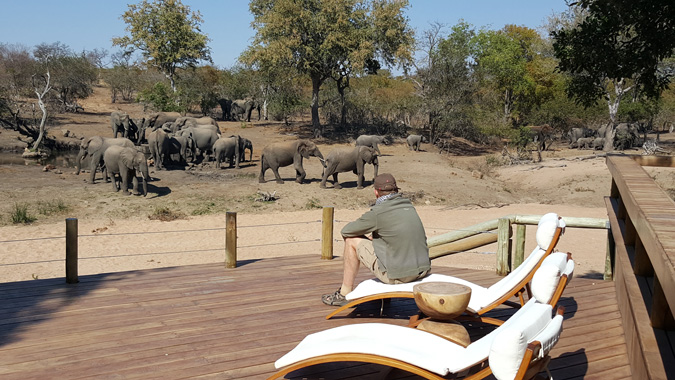Some pressure groups regularly call to boycott tourism in certain African countries, reacting to the death of animals that could conceivably have been prevented.
This is particularly so when the animals are hunted or culled or when the government in question has been slow in preventing human-wildlife conflict situations that result in the death of animals. And the resulting angst is magnified when a charismatic, named animal dies.
I disagree with the strategy to boycott tourism. After personally engaging with several pressure groups over the years, I thought I would summarise my basic counterargument in this opinion editorial.

Logic
The logic seems to be that threatening the government’s treasured tourism revenue streams will convince them to change their ways, thereby saving the animals. This logic does not hold up to scrutiny because damaging the tourism industry will result in:
1. Fewer people being employed in tourism, and those in rural areas (where the animals are and where there is little scope for alternative employment) could then turn to some form of wildlife extraction (as they did in the past) to meet their basic needs. Habitats will be modified to suit cattle and goats and tolerance of wild animals, which are often a threat to lives and livelihoods, will disappear. In other words, more animals will die, and ecosystems will be damaged.
2. Less tourism revenue for government coffers, and the resultant need to switch to alternative revenue streams in order to keep the lights on – such as hunting, mining, fishing, logging etc. In other words, more animals will die, and ecosystems will be ruined.
And so, the call for tourism boycotts to save animals is logically flawed.
The personal dimension
All of us who care react emotionally when confronted with upsetting imagery and seek the end of the carnage. And herein lies the rub – most calls to boycott tourism come from a deeply personal place, and the call for a boycott is really saying, ‘if you don’t change your ways to reflect my personal ideology, I will take you down’.
This is where some people lose the plot and cross the line into hypocrisy. Many of those who argue aggressively to boycott tourism are from the Western world, where most wildlife has been removed, and the countryside has been tamed and turned into wealth that provides a comfortable lifestyle, free of the daily issues that plague most African countries. There seems to be a pervading view amongst this sect of people that Africa should be a wild and undeveloped place so that they can feel at peace with life.
Some of this personal bias is because of the ongoing ‘Disneyfication’ of Africa, where mainstream media portrays Africa as having two dimensions: On the one hand, we have sprawling human poverty, and on the other hand, we have pristine wilderness sans humans, where animals roam freely.
Here at Africa Geographic, we host active discussions on a 24/7 basis that stem from our articles. And so often, the reaction on Facebook to tragic news such as R.I.P Tullamore, the last lion of the 5 Musketeers is: “What are humans doing there in the first place? They should be removed!”.
The inconvenient truth, of course, is that humans live in these vast areas where lions and elephants roam and have done so since before the Western world was ravaged by humans. Humans are expanding their ranges in Africa, as they are doing all over the world, and human-wildlife conflict is increasing. We need solutions for that, and boycotting the entire tourism industry is not one of those solutions.
This might come as a shock to those who have grown up believing in a ‘Disney’ Africa and who think that entire countries should bow to their personal demands. There is a really big need in the Western world, particularly among social media activists, for education about the real Africa.
During a recent Facebook discussion with a person from Europe – who called for boycotts of Namibia because of the named lion Tullamore’s death (refer to the link above) – I questioned whether they had called for boycotts of their own country because it voted at the recent CITES Council of the Parties conference in favour of trade in ivory, baby elephants and lion parts. Their reaction? “My country does not have safaris, so we cannot boycott them.” Such is the depth of their Western world indoctrination about Africa.
The best way to build up any African country’s wildlife and ecosystems is to help them justify to their people why these animals should be tolerated and that the ecosystems should not be turned to pasture for cattle and goats. Tourism is a massive part of that process. Yes, many African countries have corruption problems, and many are not very efficient in carrying out their duties, but name one country in the world that is free of these issues. Just one.
Keep the passion, keep travelling to Africa.
To comment on this story: Login (or sign up) to our app here - it's a troll-free safe place 🙂.![]()






